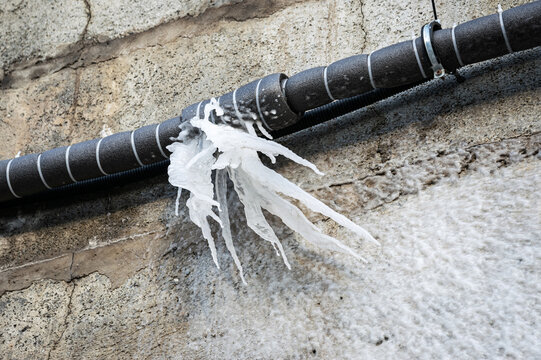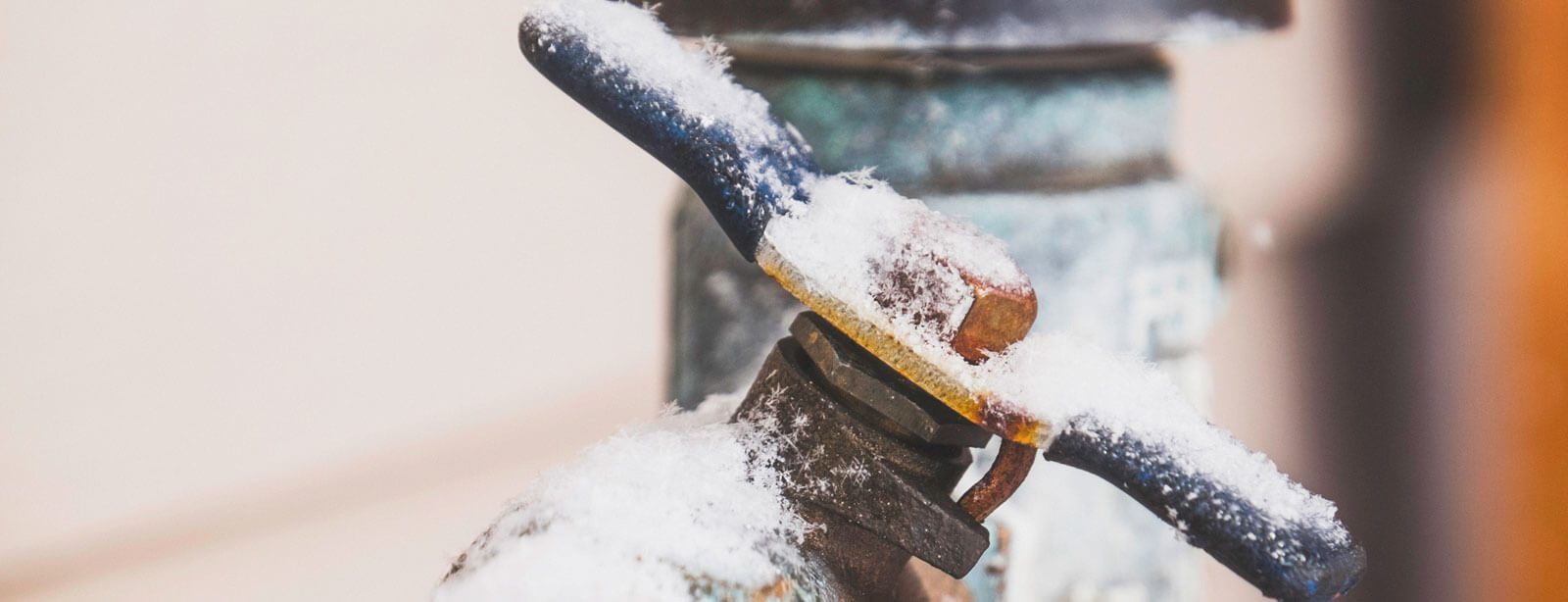Critical Methods for Avoiding Frozen Plumbing in Winter
Critical Methods for Avoiding Frozen Plumbing in Winter
Blog Article
We've encountered this article pertaining to How To Avoid Freezing Pipes below on the net and believe it made perfect sense to write about it with you on my blog.

Winter can wreak havoc on your pipes, particularly by freezing pipelines. Here's how to stop it from occurring and what to do if it does.
Introduction
As temperatures decline, the risk of frozen pipes boosts, potentially leading to costly repair services and water damages. Comprehending exactly how to stop frozen pipes is vital for homeowners in cold climates.
Avoidance Tips
Shielding at risk pipes
Wrap pipes in insulation sleeves or use heat tape to safeguard them from freezing temperatures. Focus on pipes in unheated or outside areas of the home.
Heating techniques
Keep interior spaces properly heated, especially locations with pipes. Open up cupboard doors to allow warm air to flow around pipelines under sinks.
Exactly how to identify frozen pipelines
Try to find decreased water circulation from taps, unusual smells or sounds from pipes, and noticeable frost on subjected pipes.
Long-Term Solutions
Architectural modifications
Consider rerouting pipelines away from outside walls or unheated locations. Add added insulation to attics, cellars, and crawl spaces.
Upgrading insulation
Buy premium insulation for pipelines, attics, and wall surfaces. Proper insulation aids maintain constant temperature levels and decreases the threat of icy pipes.
Securing Exterior Plumbing
Yard hose pipes and outdoor taps
Detach and drain pipes garden hose pipes prior to winter. Set up frost-proof faucets or cover outdoor faucets with insulated caps.
Understanding Icy Pipes
What creates pipes to freeze?
Pipelines freeze when revealed to temperatures listed below 32 ° F (0 ° C) for extended durations. As water inside the pipes freezes, it increases, putting pressure on the pipe wall surfaces and potentially triggering them to break.
Risks and damages
Icy pipelines can result in water system disruptions, building damages, and expensive repair work. Burst pipelines can flood homes and trigger considerable architectural damages.
Indications of Frozen Pipes
Identifying icy pipes early can prevent them from breaking.
What to Do If Your Pipelines Freeze
Immediate activities to take
If you suspect icy pipes, maintain taps available to relieve stress as the ice thaws. Utilize a hairdryer or towels taken in hot water to thaw pipelines gradually.
Conclusion
Protecting against frozen pipes calls for proactive steps and fast responses. By comprehending the reasons, indicators, and preventive measures, property owners can shield their pipes during cold weather.
Helpful Tips to Prevent Frozen Pipes this Winter
UNDERSTANDING THE BASICS: WHY PIPES FREEZE AND WHY IT’S A PROBLEM
Water freezing inside pipes is common during the winter months, but understanding why pipes freeze, and the potential problems it can cause is crucial in preventing such incidents. This section will delve into the basics of why pipes freeze and the associated problems that may arise.
THE SCIENCE BEHIND FROZEN PIPES
When water reaches freezing temperatures, it undergoes a physical transformation and solidifies into ice. This expansion of water as it freezes is the primary reason pipes can burst. As the water inside the pipe freezes, it expands, creating immense pressure on the walls. If the pressure becomes too great, the pipe can crack or rupture, leading to leaks and water damage.
FACTORS THAT CONTRIBUTE TO PIPE FREEZING
Low Temperatures: Extremely cold weather, especially below freezing, increases the risk of pipes freezing. Uninsulated or Poorly Insulated Pipes: Pipes located in unheated areas, such as basements, crawl spaces, or attics, are more prone to freezing. Insufficient insulation or lack of insulation altogether exacerbates the problem. Exterior Wall Exposure: Pipes running along exterior walls are susceptible to freezing as they encounter colder temperatures outside. Lack of Heating or Temperature Regulation: Inadequate heating or inconsistent temperature control in your home can contribute to frozen pipes. PROBLEMS CAUSED BY FROZEN PIPES
- Pipe Bursting: As mentioned earlier, the expansion of water as it freezes can cause pipes to burst, resulting in significant water damage.
- Water Damage: When pipes burst, it can lead to flooding and water damage to your property, including walls, ceilings, flooring, and personal belongings.
- Structural Damage: Prolonged exposure to water from burst pipes can compromise the structural integrity of your home, leading to costly repairs.
- Mold and Mildew Growth: Excess moisture from water damage can create a favorable environment for mold and mildew growth, posing health risks to occupants.
- Disrupted Water Supply: Frozen pipes can also result in a complete or partial loss of water supply until the issue is resolved.
WHY CERTAIN PIPES ARE MORE PRONE TO FREEZING
- Location: Pipes located in unheated or poorly insulated areas, such as basements, crawl spaces, attics, or exterior walls, are at higher risk of freezing.
- Exterior Pipes: Outdoor pipes, such as those used for irrigation or exposed plumbing, are particularly vulnerable to freezing as they are directly exposed to the elements.
- Supply Lines: Pipes that carry water from the main water supply into your home, including the main water line, are critical to protect as freezing in these lines can affect your entire plumbing system.
- Underground Pipes: Pipes buried underground, such as those connected to sprinkler systems or outdoor faucets, can be susceptible to freezing if not properly insulated.
https://busybusy.com/blog/helpful-tips-to-prevent-frozen-pipes-this-winter/

I ran across that blog post on Prevent Frozen Pipes when doing a lookup on the search engines. Enjoyed our content? Please share it. Let other people check it out. Thanks so much for your time spent reading it.
Book An Appointment Report this page